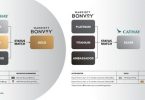For a long time now Airline stocks were perceived as highly volatile and risky due to complex labor disputes and erratic fuel prices. However, with consolidation in several areas, which resulted in positive synergies transforming the airline industry into an attractive investment. At present, the industry looks well balanced with relatively lower fuel prices and a higher passenger volume. In addition, several airlines have made purposeful efforts in increasing average pricing and cutting costs, leading to higher margins.
This is reported in I Stock Analysts blog.
I believe lower jet fuel prices will play a primary role in facilitating airline companies reporting strong growth over the next few quarters. Before we go deeper, let’s examine the revenue streams of both Delta and U.S. Airways in order to identify, how both airlines generate their respective revenues.
Both Airlines generate the highest percentage of revenues through their domestic operations with Delta contributing 38% and U.S. Airways contributing approximately 44% to its overall revenues. However, the second highest contributing revenue stream for Delta comes from its international routes at around 31%; in contrast U.S. Airways generates its second highest revenues through its express carriers at around 24%. The remaining revenues for both companies are generated through regional carriers and cargo.
Decline Fuel Prices
The sharp drop in fuel prices is expected to stimulate growth in airlines stocks such as Delta and U.S. Airways. According to U.S. Energy Information Administration, the jet fuel spot price peaked earlier this year during February at around $3.2/Gallon; however since then the price has dropped to $2.7/ Gallon.
It must be comprehended by potential investors that jet fuel represents approximately 33% of the total cost incurred by airlines and any drop in the cost of jet fuel significantly reduces the operating expense. Delta Airlines is due to release its second quarter earnings today, and I firmly believe we will witness a noticeable drop in its fuel expense, resulting in higher profitability.
Two Airline Stocks You Cannot Ignore
At present, both Delta and U.S airways appear an attractive option with the latter trading at a heavy discount. The U.S. airways TTM PE ratio is trading at around 5.69, in comparison Delta and Southwest Airlines trade around 18.41 and 26.29 respectively. Given that U.S. Airways posted robust quarterly results (4% like for like revenue growth) the stock seems to be trading at a discount. The company operates on a 7% operating margin, which is marginally higher than the industry average. Furthermore, the airline has posted a remarkable 122% return on its equity, which makes this stock a buy.
In addition to the attractive valuation of U.S. Airways, Delta has been successful in driving growth through various cost-cutting measures. The airline has taken up a stringent cost cutting initiative as it replaced several smaller regional jets with larger ones in order to enhance its operating efficiency. Moreover, the company is making a strong effort in reducing its Non-fuel unit cost by enforcing improved resource management and cheaper maintenance solutions.
Even though someone like Warren Buffet deems investing in airlines stocks risky and an easy way to lose money; nonetheless, these two stocks have broken all rules as they have posted robust numbers. I believe we are going to witness robust growth reported by both companies as we move deeper into 2013 (including September, which is usually deemed a volatile month for the airline industry) predominantly due to higher unit prices, cost cutting initiatives and increasing corporate travel.






















